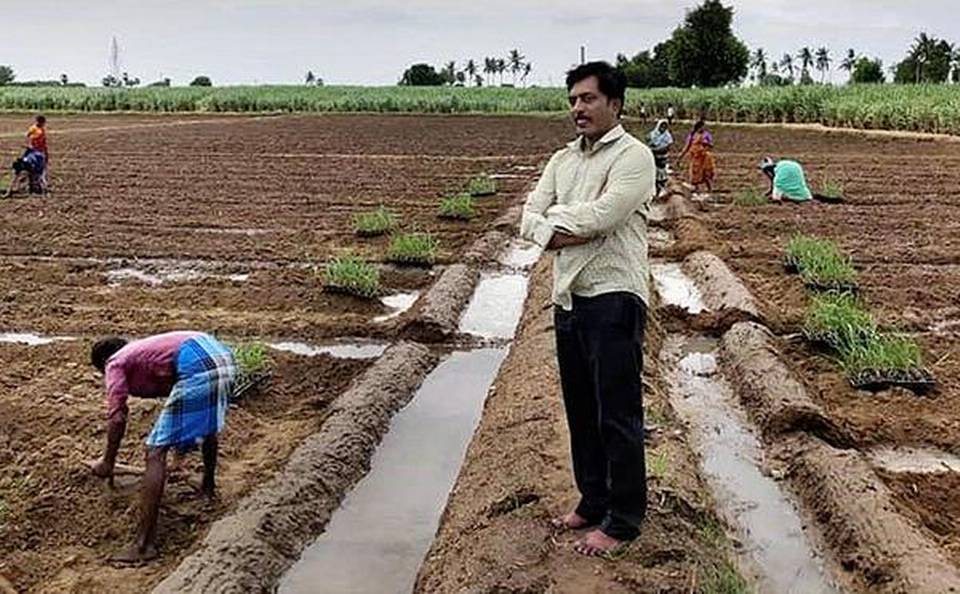
Y. Jagdeesh Reddy conferred ‘Innovative Farmer’ award by IARI, New Delhi; hopes son will follow in his footsteps
Some two and a half decades ago, Y. Jagdeesh Reddy, quit his polytechnic studies as a teenager and took up farming as a profession, with a resolve to make a difference. He started tilling his 25-acre land at his native village Nalagampalle and the nearby Moghili in Bangarupalem mandal in Chittoor district.
Like any other farmer, he had used chemical fertilizers and pesticides for almost 15 years. But, his venture gathered steam after he bid a goodbye to the use of inorganic compounds in cultivation and now, his name is synonyms with the very mention of ‘natural farming’ in the district. In recognition of relentless pursuit of the goal to liberate farm produces from chemical fertilisers, the Indian Agriculture and Research Institute (IARI) in New Delhi conferred the ‘Innovative Farmer’ award on Mr. Reddy on Friday.
“Inspired by the lectures of agriculturist and Zeo Based Natural Farming (ZBNF) pioneer Subhash Palekar, I practised natural farming on a small stretch land for the first time in the 2009 kharif. I used chemical fertilizers on the rest of my land as I was experimenting,” he says.
For three years, Mr. Reddy recalls, there was not much yield from the natural farming while the chemical fertilizers had an upper hand. “In 2012, I had outstanding results in terms of healthy growth of paddy and sugarcane crops, which eventually ensured good yield. Once for all, I stopped using chemical fertilizers,” Mr. Reddy says.
Trade secret
Explaining about the farming methods, Mr. Redddy says, “The dung and urine of native breed cows are what I am using as fertiliser. I use leaves of ten tree species to prepare a special concoction which I mixed with the dung and urine. I prepare Jeevamrutham, Ghanamrutham and Akula (leaves) Dhravam, which are used as fertilizer, insecticide and pesticide. This method augers well with the growth of useful worms and bacteria in the field.”
Ms. Reddy has also done several experiments with growing inter-crops with paddy, mango and sugarcane. Through out the year, his fields remain green with one crop or the other. The groundnut oil produced from Mr. Reddy’s farm has takers from several northern cities. “Growing multiple crops simultaneously acts as an insurance if one crop fails,” he says.
At a time when farmers across Rayalaseema are worried over the drought, Mr. Reddy appear relaxed. “Natural farming methods have proved that it can beat drought conditions as the soil moisture is preserved. Moreover, avoiding use of chemicals leads to tremendous reduction of heat, particularly in the summer,” he explains.
Healthy produce
More than business, Me. Reddy says his ambition is to make farmers shun chemical farming. “Natural farming will protect a farmer from huge loss for sure. It also helps save on the huge expenditure involved with chemicals. More importantly, the crop you produce is healthy, away from the risks of life-threatening ailments,” he says.
Mr. Reddy’s farm has now become a laboratory, attracting hundreds of students every week to have a look at the natural farming methods.
His son, Parthu Reddy (7), is a regular visitor to the field. “Its my ambition to see my son as a natural farmer,” he adds.
source: http://www.thehindu.com / The Hindu / Home> News> States> Andhra Pradesh / by K. Umashanker / Chittoor – March 09th, 2019